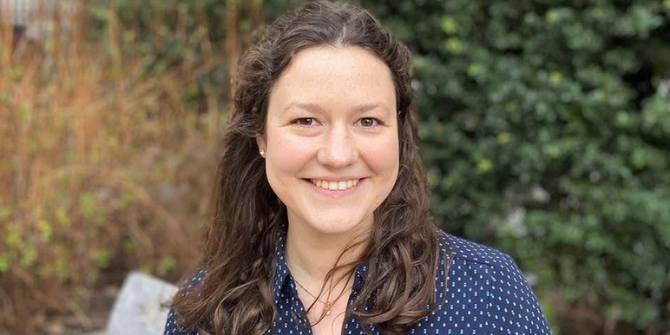During Autumn Term 2023, as part of our Race equity programme, we hosted an employer panel and networking event aimed at LSE students from Black, Asian, and diverse heritage backgrounds. Chaired by Ikenna Acholonu, Programme Manager for the Uggla Family Scholars & Alumni Programme at LSE, this panel event brought together various company representatives to discuss the topic of race in the workplace and the schemes run by their organisations to support equality, diversity, and inclusion.
If you’d like a recap on our discussion, here are three key takeaways from our panellists:
Build your professional network
There are lots of different ways for you to expand your professional network during your studies at LSE. Building a strong professional network is crucial for career growth and personal development, and there are various strategies you can employ during your studies. Here are some examples and resources to help you connect with people, build relationships, and gain mentorship:
- Attend networking events: Attend industry-specific conferences, seminars, and workshops to meet professionals in your field of interest. LSE often hosts events featuring distinguished speakers, providing excellent opportunities for networking. See our guide on networking and our events
- Utilise online platforms: Leverage professional networking platforms such as LinkedIn to connect with alumni, professors, and professionals in your industry. Join LSE alumni groups on LinkedIn to stay connected with former students who can offer valuable insights and advice. Check out our guide on using LinkedIn.
- Informational interviews: Request informational interviews with professionals in your field. Use platforms like Ask an Alum or LinkedIn to identify alumni who are willing to share their experiences and offer guidance. Reach out to set up an information interview, which is a planned, structured conversation where you will chat with a professional about their job, their organisation and their career and ask them for recommendations on possible next steps. Prepare thoughtful questions to make the most of these interactions. Find out more about informational interview and example questions on our guide to networking.
- Connect with professional societies: Join professional societies and associations related to your field. These organisations often host events, conferences, and webinars that facilitate networking opportunities.
- Engage with guest speakers: Attend guest lectures and talks by industry professionals. After the sessions, approach the speakers for a brief conversation. Express your interest in their work and ask for advice on navigating your career path. Book into our upcoming employer and alumni insight events.
Remember, building a productive professional network is an ongoing process which takes time. Be genuine, take the initiative, and consistently nurture your connections. Over time, these efforts will contribute significantly to your professional growth and open doors to various opportunities.
Explore different opportunities and interests
It’s also important to gain work experience outside of your studies to build a robust CV. Exploring different opportunities and interests, along with gaining work experience outside of your studies, is a key aspect of building a well-rounded and robust CV. Here are some examples and resources to help you broaden your horizons and enhance your CV:
- Internships and work experience: Actively seek internships and work experience related to your field of study. These experiences provide hands-on exposure to the professional world and are valuable additions to your CV. Visit our guide on internships and work experience. Organisations such as 10,000 Black Interns, Rare Recruitment, and SEO London offer a range of career enhancing opportunities targeted at students from underrepresented backgrounds. You can also engage in virtual and remote internships through Forage and the LSE Careers Skills Accelerator.
- Volunteer experience: Engage in volunteer work aligned with your interests. Volunteering not only demonstrates your commitment to social causes but also showcases your dedication and initiative. Read our guide on how to start volunteering to get started.
- Part-time work: Take on part-time jobs, especially those that offer skills relevant to your career goals. Part-time positions can be found on the LSE CareerHub portal as well as LSE Jobs. There are also many external job portals, for information on the, visit our part-time work
- Participate in extracurricular activities: Join clubs, societies, or groups that align with your hobbies and interests. Involvement in extracurricular activities showcases your passion and commitment beyond academic achievements. This can include sports, arts, cultural organisations, and more. Check out the list of LSESU societies you can join.
Remember to document your experiences, skills gained, and outcomes achieved in each opportunity. A diversified and well-documented CV not only makes you a more attractive candidate but also allows you to showcase your adaptability and versatility to potential employers.
Be your authentic self
People from underrepresented groups can sometimes feel a need to hide aspects of their cultural identity or ethnic background so they can “fit in”. However, our panellists encourage you to bring your lived experiences into the workplace (if you feel comfortable doing so) as it brings so much value to the work you do and the organisation at large. It’s important to be authentically yourself and unashamed of the things that make you unique.
Join (or establish!) an employee network within your organisation. These groups provide a supportive space for individuals from diverse backgrounds to share experiences, discuss challenges, and celebrate their cultural heritage. You can also seek out mentorship programs that connect individuals from underrepresented groups with experienced professionals in their field. Mentorship can provide guidance on navigating the workplace while staying true to your authentic self. LSESU run a mentoring programme for students from Black, Asian, and diverse backgrounds, and you can visit their website for more information.
Special thanks to our guest speakers for their contributions to the discussion:
- Lois Geraldo (Workforce Consultant at PwC)
- Philip Watson (Chief Psychologist and Chief Assessor Civil Service Fast Stream at Civil Service)
- Aissata N’Diaye (Vice President and Co-chair of the MS African & Caribbean Business Alliance at Morgan Stanley)
- Ieva Jankelaityte (Diversity, Equality and Inclusion Lead at TATA Consultancy Services)
- Paul Mokuolu (Technical Specialist/Manager – Policy Engagement, International Banks Supervision; and Recruitment Pillar Co-lead at Bank of England)
- Sam Wainwright (Graduate Recruitment at Lloyds Banking Group)
- Niyi Ojemuyiwa (Transaction Strategy & Execution (TSE) Director and DE&I & Wellbeing Lead at EY Parthenon).
Enjoyed this blog? Visit the Race equity programme hub to find out more about our programme and upcoming events. You can also book a one-to-one appointment on CareerHub with one of our careers consultants for more tailored support.





